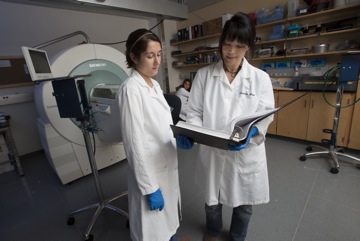
While some professions have stagnated or declined in recent decades, there is no slowdown in the demand for biomedical engineers.
Professionals such as Akash Monpara know this all too well, as he and his colleagues enjoy above average pay, meaningful work, and bright prospects for the future.
Is biomedical engineering for you? This article will explore this field in detail, from the work they do to academic requirements and income prospects.
What is biomedical engineering?
Biomedical engineering occupies the space between engineering and medicine. Professionals in this field take common engineering principles and apply them to solve problems in health care and biology-centered professions.
Where do biomedical engineers work?
There are many different work environments where you will find biomedical engineers. While you will find most in hospitals and in biomedical research facilities, they can also be found in manufacturing plants (e.g. where prostheses are assembled), government departments, universities, and working as freelance consultants.
How much do they make?
Given their status as subject matter experts in an industry that is experiencing medium to long-term growth, biomedical engineers command a healthy salary.
The median earnings for this field was $86,220 in 2015, meaning that half of all engineers earned more than this figure and half earned less.
The top 10% of engineers in this field took home $139,520 that year, which indicates a great deal of long-term upside in this profession.
Which courses will I be taking?
When you go to college to become a biomedical engineer, there are a specific series of courses that you will need if you want to have success in this field.
Be sure to seek out schools that offer a specifically tailored degree in biomedical engineering, as many employers seek out candidates with this exact academic credential when they have an opening.
If you are still in high school, focus on science (biology, chemistry, physics) and mathematics prior to applying to colleges with biomedical engineering programs.
When beginning your undergraduate career, you will take courses in organic and biochemistry, mechanics, molecular biology, electronic circuits, and genetics as part of your mandatory core courses.
If you are taking your Masters, expect to take on topic areas such as biomedical instrumentation, neuroengineering, or nanotechnology when you are in pursuit of your thesis.
Will biomedical engineers be in demand in the future?
There are a pair of factors that are driving the demand in the biomedical field: the continued aging of the population, and the movement of high technology into medicine.
As boomers age, this population cohort is clamoring for solutions to the reductions in mobility that they are suffering.
At the same time, the Big Data revolution and work on decoding the human genome has made it profitable for technology companies to move into the healthcare sector.
With loads of actionable data that wasn’t there five years ago, there is an opening for biomedical engineers to offer their expertise. The stats bear this out, as it is expected that there will be a 23% increase in the number of jobs over the net decade.
This rate of growth is much faster than other professions, making this a great field for ambitious, scientifically-minded individuals.